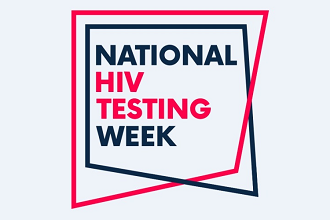National HIV Testing Week

HIV – the normalisation of testing in the fight against stigma
Human Immunodeficiency Virus (HIV) is a type of virus known as a ‘retrovirus’ and was discovered during the 1980s. Thirty years on from becoming a significant health and social care issue globally, there is still a huge challenge to encourage HIV testing take-up. There are currently more than 100,000 people living with HIV in the UK, with one-quarter of those undiagnosed and not even aware they are carrying the virus. London continues to have the highest rates of HIV in England: 37% of new diagnoses in 2020 were in London residents. In 2019, 38% of people seen for HIV care were living in London. (1)
To encourage and normalise HIV testing, doctors across the UK are more regularly and consistently offering HIV tests to patients outside of GUM speciality. But many patients refuse a test even when given the opportunity due to stigma. There is still a belief that the virus affects only certain types of people, and prejudice continues to surround those who live with HIV.
To tackle this, in April 2022, the NHS made £20 million available over three years to implement routine HIV opt-out testing within 33 hospital Emergency Departments in areas with the highest rates of diagnosed HIV. Latest NHS data shows the programme is already having success, with 834 newly identified cases of people living with HIV, Hepatitis B or Hepatitis C found between April and September following its launch – while 153 people, who were previously diagnosed but were not receiving NHS care, were also identified. (2)
As the symptoms of HIV vary from person to person, the only way to be sure if you have been infected is to have a test. HIV attacks your body’s natural defences (or immune system), and over time affects how well they can fight infections. That means that people with HIV are at risk of developing some life-threatening infections. Acquired Immune Deficiency Syndrome (AIDS) is the name for what happens when an HIV-positive person develops a number of these.
There is no cure for HIV, but modern treatment means that people who are diagnosed early are living long and healthy lives. Some doctors are hopeful that many people with HIV will live a near-normal life expectancy. That’s why by continuing to raise awareness and educating others about the importance of normalising through routine testing, we can continue to fight the stigma and see testing take-up improve. Getting tested for HIV saves lives, allowing earlier diagnosis and access to life-saving treatment.
To find out more, visit: https://www.tht.org.uk/hiv-and-sexual-health/about-hiv/hiv-statistics
References:
(1) Terrance Higgins Trust, about HIV. (link)
(2) NHS, HIV testing rollout identifies hundreds of cases. (link)
Authored by Louise Berktay
